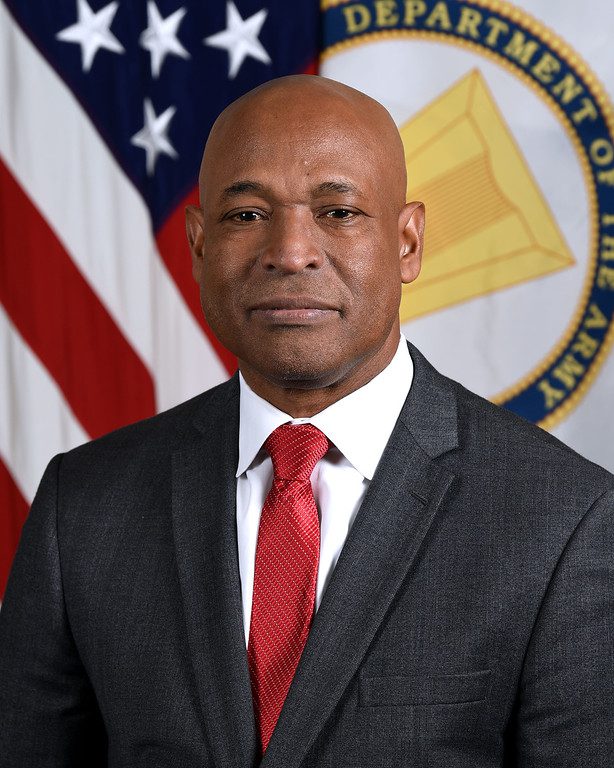
The finalists for WashingtonExec’s Pinnacle Awards were announced Oct. 13, and we’ll be highlighting some of them until the event takes place virtually Dec. 8.
Next is Diversity, Equity, & Inclusion Government Executive of the Year finalist Anselm Beach, who’s deputy assistant secretary of the Army – equity and inclusion. Here, he talks key achievements, primary focuses areas going forward, career advice and more.
What key achievements did you have in 2020/2021?
The year 2020 was the launch of ‘Project Inclusion’ — a comprehensive plan to achieve DE&I end states for a global workforce of 1.4 million military (active duty, National Guard and Reserves) and civilians. This included a 5-year strategic plan — aligned to the Army People Strategy, Your Voice Matters Listening Sessions and immediate actions to remove systemic barriers to diverse groups. One such action was the removal of photographs from centralized promotions boards based on the data which showed this had a disparate impact on women and minority officers.
The year 2021 is also highlighted as “A year of Listening” with 148 Your Voice Matters sessions at 21 installations with 6,250 soldiers and civilians who voiced their lived experiences related to racial profiling, national racial and civil unrest, and inequities on the Army.
This resulted in an Army enterprisewide approach to mitigate these negative impacts across the Army with new policies to address issues such as post-partum care, grooming policies that recognized ethnic hair needs, and efforts towards closing the gender gap.
What are you most proud of having been a part of in your current organization?
I am very proud to serve on the leadership team of the Army; and in an organization that has recognized the need for my current organization — Equity and Inclusion Agency. Subsequently, I am also very proud to lead one of the most diverse organizations in the Army — my agency is composed of 65% women, with a corresponding 65% representation of women in leadership roles.
However, the last 18 months have been challenging to lead in the COVID environment that required us to pivot to virtual operations. I implemented an employee engagement model to maintain morale and support for the team. I am most proud of the response of the team as reflected in our recent climate survey scores of 96% for connectedness; 91% for engagement; and 91% for trust in leadership.
What are your primary focus areas going forward, and why are those so important to the future of the nation?
The nation is currently engaged in a passionate conversation on DE&I, race and race relations; and DE&I has become a difficult conversation for many leaders and much of the conversation is around representation. Going forward, my primary focus areas are contributing to the academic literature and building a model to move the conversation beyond representation.
Moving beyond representation will enable organizations to move to better leverage DE&I as a framework to optimize talent, improve productivity and drive innovation. The next generation of Army leaders must understand DE&I as a 21st-century leadership competency.
Specific to the academic literature effort, I have co-authored an article that is in review for publication in spring 2022, with MIT Sloan Publishing. The article proposes a model based on a set of values and principles to move the conversation on DE&I into the 21st century and shape the practice of DE&I nationally beyond the notion of representation only.
For the Army, I developed the WHO Model for inclusive team building. Based on three questions for leaders, the model focuses the Army on leveraging DE&I as a framework to build cohesive teams in inclusive environments for the nation’s defense.
I am partnering with the Army’s Combined Arms Center at Fort Leavenworth, Kansas, to incorporate the model as a 21st-century leadership competency for Army leaders in the Army’s leadership doctrine and codify it in the Army’s leadership manual.
How do you help shape the next generation of government leaders/industry leaders?
The primary way that I help in this endeavor to shape the next generation of government leaders is through mentoring in underrepresented groups and building partnerships with affinity groups to include the National Pan-Hellenic Council and LULAC. As a mentor to aspiring military leaders in under-represented groups at West Point and the Naval Academy, last year one of my mentees (a female, Asian-American) matriculated to Naval Flight School.
I also mentor mid-careerists interested in becoming federal senior executives; and as a White House Leadership Fellow alum, I mentor and coach those interested in pursuing this prestigious fellowship. My last mentee (a female, African-American) was accepted in the recent White House Leadership cohort.
To optimize the Army’s outreach efforts across to minority and underrepresented groups, I led efforts to develop a formal outreach strategy to effectively partner with 12 affinity groups representing diverse population groups to provide exposure to the Army and career opportunities within the Army.
What’s your best career advice for those who want to follow in your footsteps?
- Be a lifelong learner — there is so much knowledge out there.
- Understand that leadership is both an art and a science so learn how and where they intersect.
- Learn to appreciate the value of the dissenting voice, it’s a part of valuing diversity and it also provides new perspectives.
- Take the unconventional path — a successful life and career is not always defined by a linear path.
- Step out of your comfort zone and be receptive to new ways of thinking, as today’s problems are complex and require new mental models to create innovative solutions.
- Practice the Four Agreements:
- Be impeccable with your words.
- Don’t take things personally.
- Never make assumptions.
- Always do your best.

